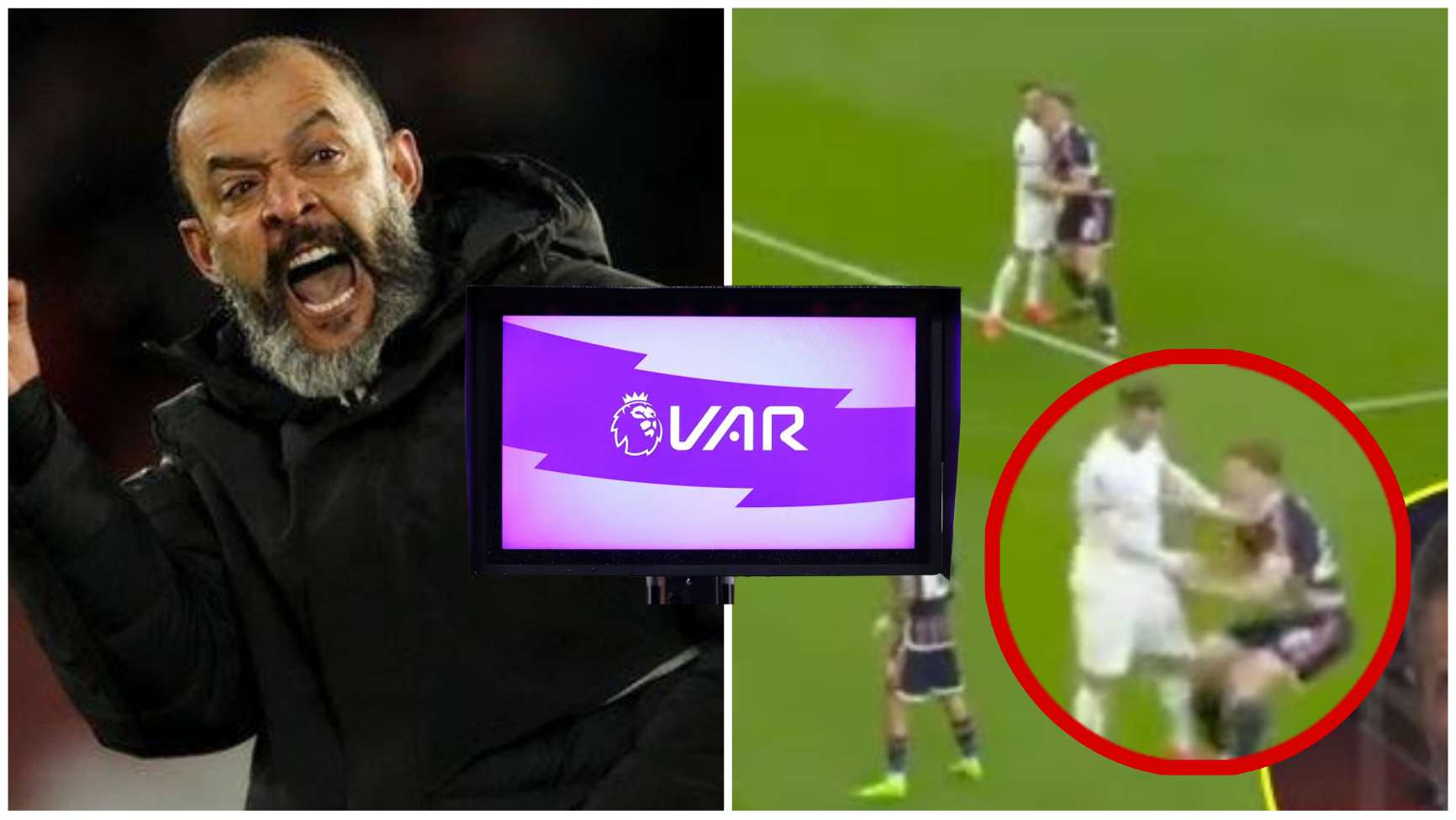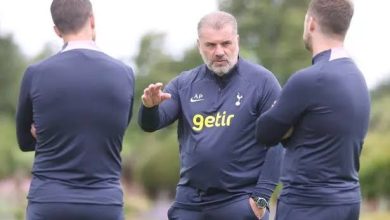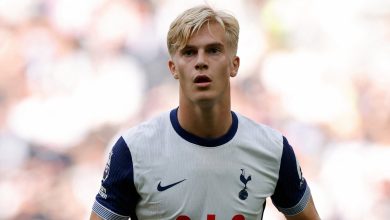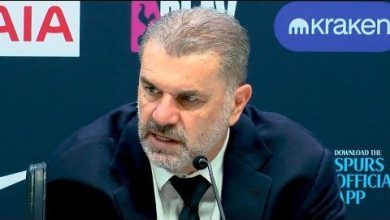Levy’s Tactical Brilliance Unveiled: Tottenham’s FFP Strategy Raises Eyebrows, Potential for Points Deduction Looms [Full story link in comment]
Leicester have joined three current Premier League sides in being punished for breaching financial rules. The Foxes are a Championship team at present but have not been able to avoid the clutches of profitability and sustainability rules (PSRs).
It means that there are four teams with charges hanging over them and 10 points taken from the top-flight table after 28 matches, and that figure may just rise. Leicester are looking at a possible sanction themself should they earn promotion back to the Premier League, with the EFL placing the club under a transfer embargo on Friday that could impact their summer transfer window plans.
Manchester City’s 115 charges looming in the background of this all is the biggest unspoken aspect of every weekend, whilst Chelsea are also under investigation for historic misdeeds under Roman Abramovich. Arsenal are incensed – or at least their fans are – at the lack of public progress being made to clamp down on City.
Liverpool could also benefit from a possible punishment. There are several sides in the current relegation battle that have more than one eye on Everton’s second trial and the stance Nottingham Forest will take over a potential appeal. 23 Championship sides have a vested interest in Leicester’s case as well.
Tottenham, at this stage, are near enough the only side without much to worry about. They were the free spenders in the January transfer window as they signed Timo Werner and Radu Dragusin, whilst they aren’t bound by sales like their rivals.
With the prospect of securing Champions League football for next year, and at the very least Europa League, their position is set to be strengthened. Unlike some of the other teams that see themselves as a challenger at the top of the table – Manchester United, Chelsea, Liverpool, and Newcastle – there is no likelihood of a managerial change either, which will reduce the spending as well.
Spurs, often the outsiders in these conversations due to their lacking trophy cabinet in recent years and the tag as ‘bottlers’ have gone about their work in a different way. Often to the frustration of some supporters who have complained at a lack of ambition, these methods are now proving to be mightily effective.
Daniel Levy within this is a divisive figure, but his work has ensured that as the league goes to war with some of its members (and former members), Tottenham can watch on without worry. Getting the club back to competitive levels in the top four has also come at a much less expensive cost.
“The landscape of the Premier League has changed significantly in the last decade,” Levy said in February 2023, the same week that City were charged, and commenting on overspending from the giants – or perceived giants – of English football. “It is understandable that some fans call for more spending, much of which is unsustainable for many clubs.
“We are competing in a league in which we have seen increased sovereign wealth ownership and consortia finance; and in a league where the spending power is now vested in the hands of a few who dominate and have the ability to distort the market.
“We welcome the changes to the governance of the game which will compel greater financial sustainability and financial fair play (FFP). Major changes have been introduced in Europe around FFP regulations, including the newly-launched UEFA financial sustainability rules, the full impact of which will be felt from season 2025/26.
“They are based on three pillars: solvency, stability and cost control and clubs will have three seasons to adjust to them. Many expect that these new rules will be a game changer for the sport. Even tighter regulations may follow.”
Levy’s words now appear somewhat prescient. At the time there was little suggestion that points would be docked, let alone punishments far outweighing that including relegation and the stripping of titles which are on the table no matter how unlikely.
As someone who has never pushed the line, choosing instead to run the club like a public company, Levy is now well-placed to take advantage of the stringent rules in place. The Premier League is set to adapt the PSRs again and the failure to agree on a new deal with the English Football League (EFL) brings the incoming independent regulator into focus.
It’s a changing landscape and one that Levy is ready to use to his benefit. “Well, firstly, there are new UEFA rules coming into effect this season where sustainability is going to become much more paramount in people’s minds,” he explained in an interview with Cambridge Union last year. “You will be limited to the amount you can spend on wages and transfer fees to a percentage of your total turnover.
“It’s starting off at 90% and, over three years, it’s going down to 70%. The impact of that is effectively some form of wage control. Even though clubs have been spending very heavily – if you talk about someone like Chelsea – now the new rules come into effect this summer, you will find, regardless of who is the owner, it’s going to have quite an impact on the financing of football.”
He is also open about how the club progresses through investment. “I’ve got no real interest to leave Tottenham, but I have a duty to consider anything that anyone may want to propose,” he added. “It’s not about me, it’s about what’s right for the club.
“We have 30,000 shareholders who own approximately 13.5 per cent. We run this club as if it is a public company. If anyone wants to make a serious proposition to the board of Tottenham we would consider it, along with our advisers, and if we felt it was in the interests of the club we would be open to anything.”
Business of Football Writer Dave Powell described Levy’s plan over the past eight years as ‘serene’, explaining that, “Spurs emerged as the club with the best PSR position in the Premier League, with allowable losses of £276m, a figure aided by the fact that much of the losses attributed to the club can be linked to the building of the Tottenham Hotspur Stadium (THS), with stadium and infrastructure costs not factored in when it comes to PSR calculations.”
The stadium, a much-discussed issue around the club, has proven to be one of the best assets associated with Tottenham – though understandable scrutiny remains over ticket pricing. Whilst spending was limited in the years leading up and also following its construction, the reward has already been enormous. “We had been operating with one of the smallest stadia in the Premier League and, consequently, lower match day revenues in what is a fiercely competitive environment,” the Spurs chairman told the Financial Times.
“An increased capacity stadium was critical to meeting demand from fans unable to get access…and driving greater match day and non-match day revenues to reinvest in the football side.”
Levy also explained: “Debt isn’t really a problem for anyone that understands finance, providing you can match long-term income streams with long-term debt. As long as it is financed properly it isn’t a problem.
“It is effectively a 30-year mortgage at a very low interest rate. It’s not a problem at all. When you are building a club and building long-term value there are a number of ingredients. One is profitability; some clubs are valued at a lot of money that aren’t profitable, therefore revenue becomes important. Physical assets, success on the pitch; there is no one asset, you need them all to come together.”
Alongside the stadium Tottenham now have a team and a manager that are deemed worthy of playing in such an arena. Unlike their rivals, this can be something to revel in moving forward without much of a care in the world.
The league continues to take big steps against its own, but Tottenham are safe. The Everton and City charges were a shock, the points deductions even more so. Now it is commonplace 12 months on and is here to stay. Spurs are walking on sunshine though, and in this current climate, that is not to be sniffed at.









